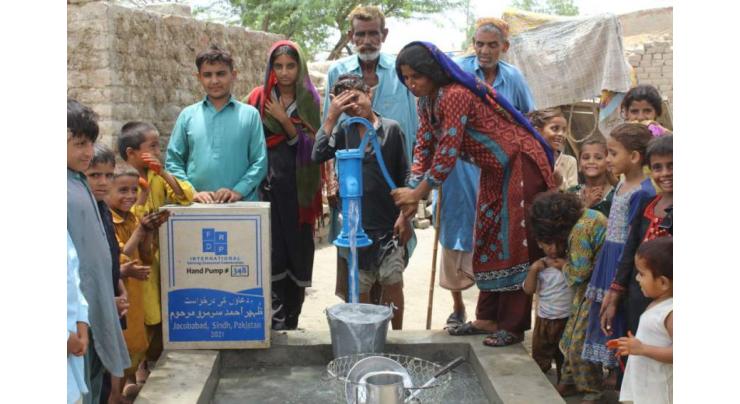ISLAMABAD, Mar 06 (APP): In partnership with KOICA, UNOPS
Pakistan is supporting the Ministry of Climate Change to strengthen the technical and coordination capacity of the Govern
ment of
Pakistan to monitor drinking
water quality in close collaboration with Punjab and KP provincial governments, PCRWR and Pak-EPA.
This project will benefit over 62 million people in the provinces of Khyber Pakhtunkhwa and Punjab & Islamabad, said a press release.
In an event held in Islamabad, Senator Mr. Muhammad Sabir Shah (Chief Guest), Senator Ms. Keshoo Bai, Ms. Samar Ihsan, Additional Secretary EAD, Ms. Sadia Sarwat, Additional Secretary Ministry of Climate Change, Park Ki Jun, Ambassador of the Republic of Korea, Yeon Je Ho, Country Director KOICA
Pakistan and Ms Jennifer Ankhom-Khan, Country Manager UNOPS
Pakistan, attended the closing ceremony of the project “Enhancing Water Quality Monitoring System to achieve SDG 6 in Islamabad, Punjab a
nd KP???
Acknowledging the fundamental right to clean and safe drinking
water, the initial and vital step is monitoring its quality.
Pakistan faces a significant challenge, with almost 44% of the population lacking access to safe drinking
water.
In response, the Korea International Cooperation Agency (KOICA) collaborated with UNOPS
Pakistan to enhance
water quality monitoring systems in Islamabad, Punjab, and Khyber Pakhtunkhwa (KP),
Pakistan.
UNOPS
Pakistan is implementing this project in collaboration with the Ministry of Climate Change
Pakistan (MoCC),
Pakistan Council of Research in Water Resources (PCRWR),
Pakistan Environmental Protection Agency (Pak-EPA) and Public Health and Engineering Departments of Govern
ment of Punjab & KP.
The $4.4 million project has been implemented in 35 district laboratories in Punjab, 8 divisional labs in KP and research and monitoring laboratories, PCRWR and Pak-EPA, in Islamabad.
The project includes significant upgrades to
water-quality testing laboratories, encompassing the procurement and installation of advanced laboratory equipment, minor infrastructure enhancements to ensure a safe working environment, capacity-building initiatives for laboratory staff and the WASH Cell of the MoCC, the introduction of a Management Information System (MIS) for improved coordination, and the provision of 8 vehicles transformed into
water-quality testing laboratories for the Govern
ment of KP and 1 vehicle for PCRWR.
